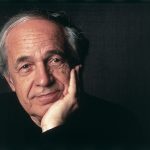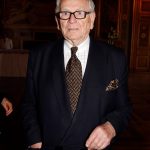Date of Birth: August 1, 1930
Zodiac Sign: Leo
Date of Death: January 23, 2002
Biography
Pierre Bourdieu was a highly influential French sociologist, anthropologist, and philosopher, renowned for his extensive work on social theory and the dynamics of power in society. Born on August 1, 1930, in Denguin, Pyrénées-Atlantiques, France, Bourdieu’s intellectual journey began in earnest at the École Normale Supérieure in Paris, where he initially studied philosophy. However, his experiences and research in Algeria during the late 1950s shifted his focus to sociology. Bourdieu’s career was distinguished by his commitment to understanding the social structures that shape human behavior and thought. His work often explored the ways in which various forms of capital—social, cultural, and economic—interact to reinforce social hierarchies. Among his most significant contributions to sociology are the concepts of “habitus,” “field,” and “cultural capital,” which provide a framework for analyzing the subtle, often invisible mechanisms of power and domination in society. Throughout his career, Bourdieu published numerous influential books and articles, including “Outline of a Theory of Practice” (1972), “Distinction: A Social Critique of the Judgment of Taste” (1979), and “Homo Academicus” (1984). His work has had a profound impact on various fields beyond sociology, including anthropology, education, and cultural studies. Bourdieu held academic positions at several prestigious institutions, including the Collège de France, where he was a professor from 1981 until his death. He was also an active public intellectual, engaging in critical debates on education, media, and politics. Bourdieu’s legacy continues to shape contemporary sociological thought and research.
5 Interesting Facts about Pierre Bourdieu
1. Pierre Bourdieu served in the French Army during the Algerian War, an experience that deeply influenced his later work on social structures and power.
2. Bourdieu’s concept of “cultural capital” has become a cornerstone in the study of social inequality, highlighting how non-economic resources such as education, intellect, style of speech, and even appearance contribute to social mobility.
3. He founded the Centre de Sociologie Européenne (Center for European Sociology) in 1968, which became a leading institution for sociological research.
4. Bourdieu was a vocal critic of neoliberal globalization and its impact on social inequality, often using his platform to advocate for social justice and educational reform.
5. His book “Distinction: A Social Critique of the Judgment of Taste” was named one of the 20th century’s most important sociological works by the International Sociological Association.
5 Most Interesting Quotes from Pierre Bourdieu
1. “The function of sociology, as of every science, is to reveal that which is hidden.”
2. “Cultural capital refers to the non-financial social assets that promote social mobility beyond economic means.”
3. “What is essential goes without saying because it comes without saying: the tradition is silent, not least about itself as a tradition.”
4. “The most successful ideological effects are those which have no need for words, and ask no more than complicitous silence.”
5. “Taste classifies, and it classifies the classifier.”
Highest Net Worth Achieved
Pierre Bourdieu’s net worth is not well-documented as he was primarily an academic and public intellectual rather than a commercial figure. His influence and legacy, however, are invaluable in the fields of sociology and social theory.
Children
Pierre Bourdieu had three sons: Jérôme Bourdieu, Emmanuel Bourdieu, and Laurent Bourdieu. Emmanuel Bourdieu is notable for his work as a playwright, screenwriter, and film director.
Relevant Links
1. [Pierre Bourdieu – Wikipedia](https://en.wikipedia.org/wiki/Pierre_Bourdieu
5. [Obituary: Pierre Bourdieu](https://www.theguardian.com/news/2002/jan/25/guardianobituaries.books

